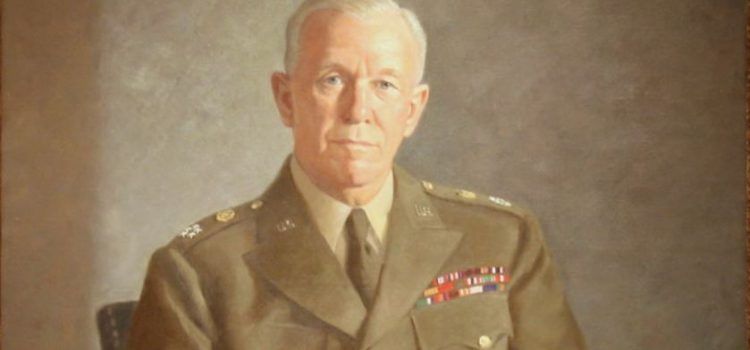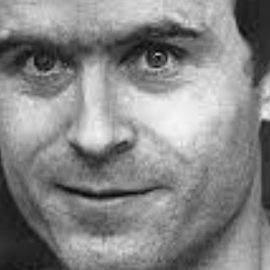

This article is an excerpt from the Shortform book guide to "The Road to Character" by David Brooks. Shortform has the world's best summaries and analyses of books you should be reading.
Like this article? Sign up for a free trial here .
Who was George Catlett Marshall? How did Marshall’s humbleness and humility allow him to rise up the ranks?
In his book The Road to Character, author David Brooks highlights George C. Marshall’s life because he displayed humbleness and self-sacrificing behaviors that are rarely seen today. Marshall advocated for others rather than himself and eventually ended up winning a Nobel Peace Prize.
Continue below for a brief overview of George C. Marshall’s life.
George C. Marshall
George Catlett Marshall, the Army general who led America through World War II and created a plan to rebuild Europe after the war, demonstrated the importance of:
- Exhibiting a reserved, dignified demeanor
- Sacrificing our individual desires for the benefit of others
- Living humbly and finding fulfillment in our obligations to our community
- Curbing our passions and moderating our opinions for the greater good
Marshall’s Character Development
Born in 1880, George Marshall’s early years were mostly a disappointment. He was a poor student in school and undisciplined at home. When he wanted to follow his older brother to the Virginia Military Institute, his brother begged their parents not to let him go for fear he would embarrass the family.
But Marshall proved his brother wrong. He blossomed at VMI, a school that emphasized honor, self-control, and service. The regimentation suited him perfectly. Like most first-year students at the school, Marshall was hazed and bullied by upperclassmen, but he held on to his dignity and toughened up under peer pressure. His teachers taught him to revere history’s heroes from George Washington to Joan of Arc, and those lessons stuck with Marshall. By the time he graduated from VMI, he had mastered both military skills and self-control.
Marshall’s Struggles
Much like his contemporary Dwight Eisenhower, Marshall’s career did not take off quickly. He held several minor Army staff positions, and at age 39, he ranked only as lieutenant colonel. Still, he forced down his pride and did whatever job he was assigned, which was almost always administrative and rather dull. But his sense of duty always prevailed. He didn’t complain about his posts, and he never “blew his own horn” in order to be considered for better positions. His nature was quiet, reserved, and subservient.
Marshall became a studious master of logistics and was hired as General John Pershing’s assistant. This was not the job he hoped for, but because of his institutional mindset, he graciously accepted the assignment. Meanwhile, his personal life was dealt a harsh blow—while working for Pershing in Washington, Marshall’s beloved wife Lily died of a heart condition. Alone and heart-broken, he continued to be passed over for military positions he coveted.
Eventually, in 1939, President Franklin D. Roosevelt needed a new chief of staff, and Marshall was chosen for his skill in logistics and organization. He excelled in the role even when he had to end the careers of hundreds of military men. Because of his great dignity, even his toughest decisions were respected by his soldiers.
In the midst of World War II, the Allies needed a commander for the invasion of France. Marshall badly wanted the job, but when Roosevelt asked Marshall point-blank if he should be given the position, Marshall didn’t advocate for himself. Instead he told him the President to do what he thought was best. Roosevelt believed Marshall was doing a great job in Washington, so he didn’t want to make changes. He selected Eisenhower to command the Allied forces instead of Marshall.
It was another crushing blow to his career, but Marshall took it in stride. Eisenhower became a great war hero while Marshall continued to work largely behind the scenes.
After World War II, Marshall tried to retire, but then-president Truman kept giving him additional roles—first as ambassador to China, then as Secretary of State. Marshall of course accepted. But this is where his star finally rose—as Secretary of State, Marshall authored and enacted the plan to rebuild Europe after the war, which he humbly called the “European Recovery Plan” even though everyone else called it the Marshall Plan. His quiet, dignified leadership led to him winning the Nobel Peace Prize in 1953.
A popular periodical once offered Marshall more than $1 million for his life story, but he turned down the offer because he feared embarrassing people he had worked with. As always with Marshall, duty prevailed over glory, fame, and even a huge amount of money.
When Marshall died at age 79, his funeral instructions stated that he wanted to be buried without fuss, “like any ordinary officer of the US Army.” His colleagues remember him best for his integrity and dedication to the Army as an institution.
Lessons From Marshall’s Life
- Individual ambitions and desires should always take a back seat to the betterment of a community or institution. Focus on the greater good even if it requires personal sacrifices.
- Always choose humility over self-promotion.

———End of Preview———
Like what you just read? Read the rest of the world's best book summary and analysis of David Brooks's "The Road to Character" at Shortform .
Here's what you'll find in our full The Road to Character summary :
- How the world has become "me-focused" rather than "we"
- An analysis of eight historical figures who selflessly contributed to the greater good
- A 15-point plan to help you live a more virtuous and happy life






